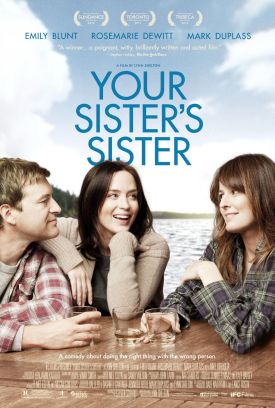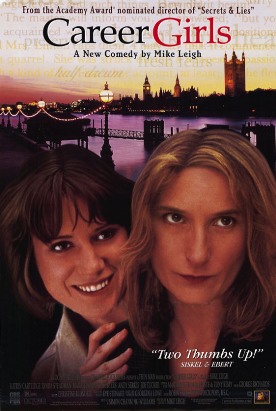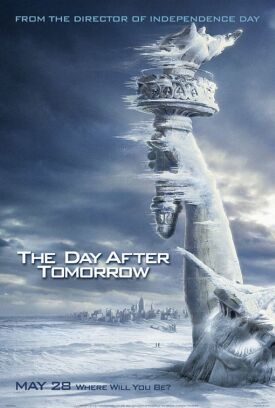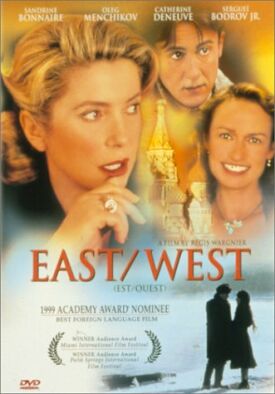Your Sister’s Sister
The word that echoes through Lynn Shelton’s Your Sister’s Sister is “weird.” Here, for instance, is Sister A talking to Sister B. “I know you like him, but do you like him like him?”
Sister B replies, “Yeah, I think I’m in love with him. Do you think that’s weird? Because of Tom, I think it might be weird.”
What Sister B or Iris (Emily Blunt) doesn’t know, however, is that Sister A, Hannah (Rosemarie DeWitt), ostensibly a lesbian, has already slept with the gentleman in question, who’s called Jack (Mark Duplass). He’s the brother of Tom, Iris’s ex-, now deceased, which is why Iris thinks her feelings for him “weird.” Needless to say, when, Hannah’s awful secret is revealed, her sleeping with Jack is also said to be weird — although, since she had just broken up with her long-term girlfriend and both she and Jack were pie-eyed drunk at the time, it might not seem all that weird to those of us looking on. We are soon to learn that Hannah has another motive which makes it even less weird.
But “weird” has a special meaning in this movie, as I suspect it does in much of the popular culture. It’s not so much “strange” or “paranormal” (or even just “abnormal”) but more like what a previous age might have termed “unseemly.” Iris and Hannah and Jack, too, are all groping in their stumbling and inarticulate way towards the concept of decorum and, beyond it, something like decency, but the culture out of which they and so many of their generation have emerged regards such concepts as outmoded and, they suspect, vaguely indecent themselves. Any normative principle applied to sex in particular, whether of morality or good taste, is automatically dubious, if not forbidden in the post-“liberation” era, and that leaves “weird” to do the work of a whole spectrum of terms now regarded as overly “judgmental” — terms ranging from immoral to indecent to tasteless to disgusting to, well, weird.
Perhaps it is no accident, then, that one of the consequences of the excessive and excessively vague use of “weird” is that, to anyone looking on, there is a noticeable absence of weirdness about these three narcissists, staying in an isolated cabin in the Washington state woods together for reasons having to do with the need by one or more of them for “some head space” — a commodity that their conversation suggests they all have more than enough of already. Nothing they do can surprise us because they have erected their moral and linguistic self-limitations precisely in order to preserve their right to self-validation for whatever they do. If there is no word of moral disapprobation stronger than “weird,” then not even Jack’s and Hannah’s self-indulgence is likely to rise even to that level.
To ask if something one has done is “weird” is to invite a denial. “Weird” can thus be used only ironically. By definition it is that which lies beyond what one actually chooses to do and which therefore validates it as non-weird. If there is a certain calculation behind this particular bit of linguistic poverty, it’s hard to see the rest of that poverty on parade in this movie as anything but aphasia cultivated for its own sake, presumably as a mark of emotional and psychological authenticity. Much of the movie’s dialogue is said to have been improvised, and it shows. It’s a mixture of therapy-speak (“buy-in”) and hippy inarticulacy, as when Jack’s drunken but soulful conversation with Hannah prior to their coupling descends to his assurances that her ex-lover’s claim she was “not enough” for her had to have been “f***ing bulls***” and that “your butt is f***ing awesome.” What girl could resist such honey-tongued blandishments?
The Guardian thought this conversation “effortlessly naturalistic” and no doubt it is, in the sense that lots of people, especially lots of younger people, do talk like that. But on my ear it leaves an impression of utter artificiality, as if the natural expressiveness of people in a state of heightened emotion had had to be suppressed for fear that it would sound affected or unreal. Authenticity has for so long been associated with such deliberate dumbness — alluded to, perhaps, in the “Mumblecore” movement that both Miss Shelton and Mr Duplass in his directorial role (Baghead, Cyrus, Jeff, Who Lives at Home) are associated with — that it no longer sounds authentic. Just as when people say, as someone does say in the movie, “Is this making any sense?” they expect the answer that it is, even though it almost always isn’t, the need for reassurance that the right impression is being communicated is a sign that it isn’t.
If “weird” is the film’s favorite word, “charming” appears to be favorite among the film’s critics. The characters are “are remarkably charming and pleasant company” says A.O. Scott of The New York Times. The Guardian headline was “a charming, insightful examination of criss-crossing relationships that was one of the buzziest titles of this year’s [i.e. last year’s] Toronto film festival.” The Washington Post’s Ann Hornaday ups the ante with “funny, smart, charismatic friends.”
Mr Scott makes the interesting point that “You could call Your Sister’s Sister a group portrait of youthful solipsists in an era of economic contraction and social malaise, but that wouldn’t be quite right. Self-absorption is not the subject; it is the paint.” There’s something in that, but the subject is no more interesting. It is that perennial Hollywood favorite the unconventional family, which is now itself so conventional that it bespeaks a kind of collective solipsism that is the echo of characters’ self-absorption.
The one break in this bleak landscape, and the only point in the movie at which there is anyone other than the three main characters to interest us, is the opening scene of the party for poor dead Tom on the first anniversary of his death. Tom seems to have been quite a guy, as everybody agrees — until Jack speaks up as the voice of “honesty” — a sure sign that something “weird” (formerly known as reprehensible) is to follow. This is also the only part of the movie in which Jack has a real connection to anything outside his own head, but he cannot bear to hear his brother eulogized in the company of his friends without attempting to impose his own rather sour feelings about him on their fond memories.
Someone that lacking in a sense of decorum or good manners can hardly rise to the level of “charming” in my book, even if he could ever get over himself, which apparently Jack cannot. It used to be that such a person would have the compensating virtue to this vice of authenticity, but even that has now gone. He’s as phony as the boy-girl best-friendship he supposedly enjoys with Iris — which is another Hollywood mainstay of the meet-cute kind since the late Nora Ephron’s When Harry Met Sally. He’s as phony as his self-description to his new-found harem as “emotionally at best precarious and at worst a cripple.” He’s not an emotional cripple, but a moral and intellectual one, as are the others responsible for this movie.
Discover more from James Bowman
Subscribe to get the latest posts to your email.






